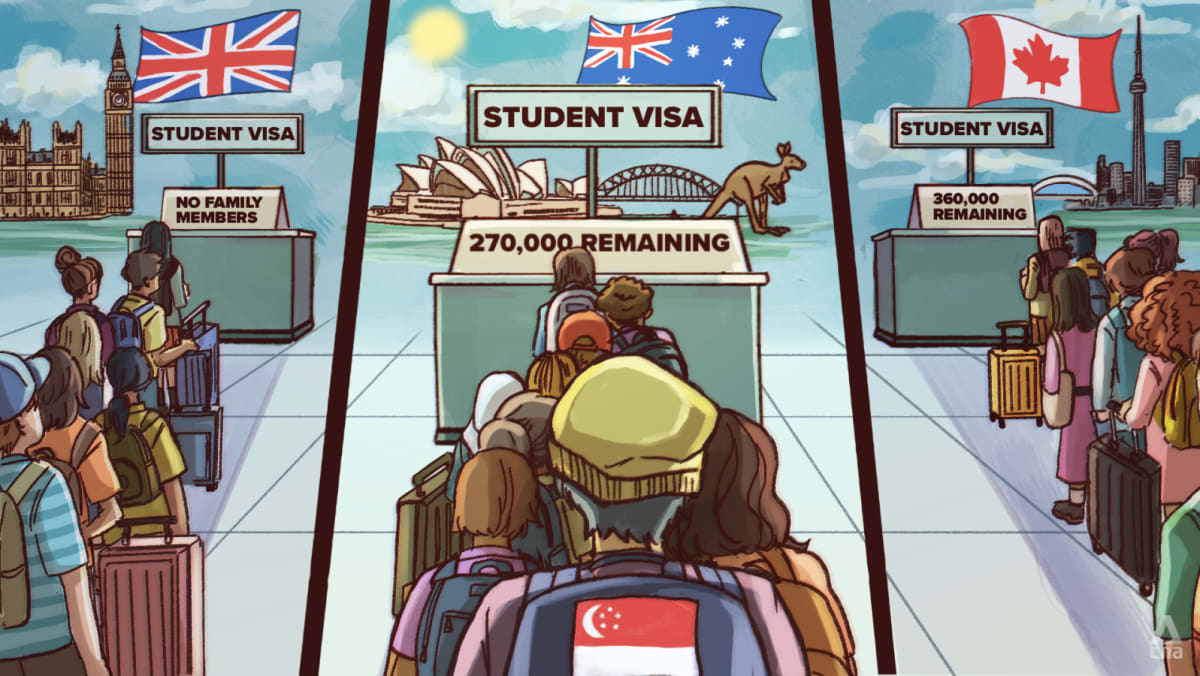ARE SINGAPOREANS UNFAIRLY PENALISED?
The community of Singapore students in foreign countries is typically a small one. The 5,986 Singaporean students who enrolled to Australia in the first five months of this year, for example, pale in comparison to the more than 153,000 and more than 118,000 students from China and India, respectively.
Despite their small numbers, academics think Singaporeans may have an edge over their peers precisely because of nationality.
“Singapore, by and large, has a very good international reputation in terms of the conduct of students and the professionals,” noted Dr Leong.
“When landlords know that a Singaporean is looking for a place to stay at their property they are more willing to offer them the place than nationals from other countries where they have had a bad experience renting out.”
In that aspect, the red passport does offer “some advantage”, he noted.
Although, Dr Leong acknowledged that the opposite does happen – where Chinese Singaporeans are sometimes confused with those from China.
Prof Gomes assumed that part of the cap will be based on the student’s ability to actually qualify for the university that they are applying to – in other words how good their grades are. In her experience, Singapore students have impressed with their strong language skills.
Dr Chan of theRightU has not heard of any university that might decide its composition of international students based on nationality, but suggested that universities may plan recruitment activities in a way that reflects that.
Universities could choose to be more selective with their scholarships or tailor their budgets or activities towards markets they want to woo.
ANU told CNA that it was still working on how the changes could be implemented from next year and the impact of the cap on its finances. The university enrols between 100 and 200 Singapore students each year.
“Singaporean students have selected ANU as their university of choice for many years and we remain committed to this ongoing partnership,” a representative said.
Asked about its strategies to woo Singapore students especially in the face of the ongoing uncertainty, the university pointed to its ANU Chancellor’s International Scholarship, available to Singapore students.
It also held its most recent international information day in Singapore in July, which attracted nearly 300 registrations from prospective students and their parents.
“We understand that certainty is vital in deciding where to study. We want to assure our prospective students that ANU will not rescind any offers already made to international students for 2025.”
The Group of Eight (Go8), a body representing eight of Australia’s leading research-intensive universities including ANU and UNSW Sydney, said more than 4,000 higher education enrolments were from Singaporeans at its universities in 2023. The number comprises 70 per cent of total higher education enrolments from Singapore.
These students have predominantly studied in the disciplines of health, society and culture, management and commerce, and natural and physical sciences at Go8 universities.
The body’s deputy chief executive, Dr Matthew Brown, reiterated his opposition to the international student cap, warning that such curbs would likely see a significant reduction in demand as top students elect to study elsewhere.
Citing the visa fee increase and crackdown on visa approvals for international students, Dr Brown said: “We are concerned that this will reverse the diversification of countries from which students come, at the very time the Government is encouraging our universities to attract quality students from the ASEAN (Association of Southeast Asian Nations) region.”
“As Australia’s higher education works through this potentially damaging period, the Go8 will continue to engage closely with our regional neighbours to demonstrate our quality education offering and to build on the deep education and research relationships developed over many decades.”

